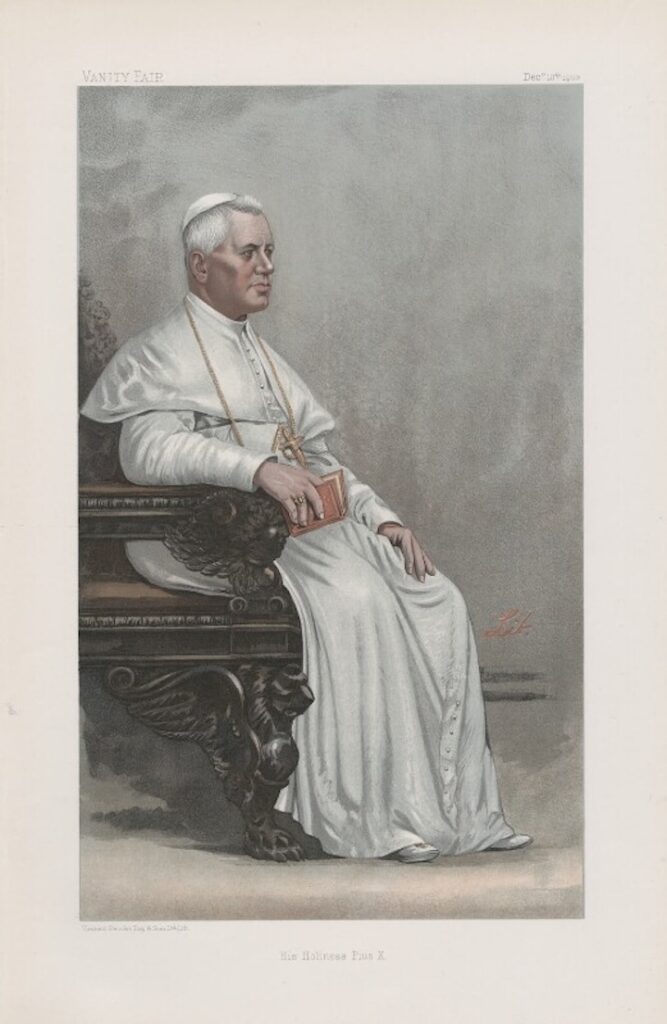Perhaps my criticism of the Instrumentum Laboris, and the various documents that follow from it through the Synod on Synodality, is trivial. This is because I find them trivial. Doctrines are suggested without any argument besides the implication that they are modern and up-to-date.
To start narrowly and personally, I did not become a Catholic in order to be modern and up-to-date. I did have to choose. Indeed, I was fleeing the intellectual, spiritual, emotional and sometimes physical fashions of my time, by signing up to the Church. Had I been born a Catholic, I do not see how I would not have had to pass through a similar revulsion. For I cannot imagine an upbringing, anywhere in the modern world, where this could be avoided.
One is, as it were, marked for “martyrdom.” As all readers will I hope already know, this word does not describe a martyr’s death, necessarily, but the martyr’s “witness,” from the Greek word for witness and Greek suffix for “a state or condition.”
Being a Catholic sets one apart, as, more extensively, it always has. The best social analogy I can imagine is being Jewish. It is, in that comparison, not an option. God comes into it. One is “chosen” and cannot be unchosen. For the Catholic (who is Christian “par excellence”) one is bathed in the Grace. Even in moments of religious doubt, he cannot escape it.
I have met many Catholics who tried. I haven’t met one who succeeded, although the attempts to be free of Our Lord involve him in much pain and confusion.
This is also true of those who don’t quite escape, and who are marked by a confusion that is a source of pain, for them and for others. In the absence of moral clarity, intellectual clarity is unavailable to them, and vice versa.
My trivial critique of the Instrumentum Laboris, et seq., is papistical. I was informed by Pope Pius X, and most recently, by a meditation on this passage from Pascendi Dominici Gregis (“On the Doctrine of the Modernists,”1907):
It is one of the cleverest devices of the Modernists (as they are commonly and rightly called) to present doctrines without order and systematic arrangement, in a scattered and disjointed manner, so as to make it appear as if their minds were in doubt or hesitation, whereas in reality they are quite fixed and steadfast.
Here, I think Pius X (I’m aware that I may be criticized even for my choice of popes) was most alarmingly prescient, for his criticism would continue to be current more than a century later. His critique of the modernists of his day pertains so well to all features of the Synod on Synodality today, that I would invite all Catholics who have an interest in their religion to read the whole thing.

Even so, this tiny passage has a broader application, to the ecclesiastical fruits of the last sixty seasons. The sainted pope continues that the Modernists:
cry out that ecclesiastical government requires to be reformed in all its branches, but especially in its disciplinary and dogmatic departments. They insist that both outwardly and inwardly it must be brought into harmony with the modern conscience, which now tends towards democracy; a share in ecclesiastical government should therefore be given to the lower ranks of the clergy, and even to the laity, and authority, which is too concentrated, should be decentralized.
Not only does he foresee the gradual, when not rapid, disappearance of references to Christ from the language of a successor, but from that of the entire Church after Vatican II – long after his death. This is because it was already disappearing in the world around him.
Saintly popes (and there have been a few) are sensitive to the relation between God and man. This strikes me as the best way to explain the subtlety of their analyses.
Over the last sixty years, liturgy and pastoral work has been conducted, largely, in a secular spirit. Not all, but a broad majority of our living fathers of the Church, have become embarrassed with the traditional Catholic rhetoric, which provides in itself the opposite of Modernism. And this changed rhetoric has made for a devastating change in outlook, with its doctrinal implications.
For we were and are members of the Church, founded by Christ, who is God incarnate. This is the central rhetorical fact, because it is the central fact of our being. It cannot be “relaxed,” without relaxing everything that is real.
Part of the (temporal) victory of the Modernists is this huge rhetorical “paradigm shift,” the mere details of which we are still lapping up. It counts just as much as, or more than, any specific “blessing of a gay marriage” or a “remarriage” or any other heretical flourish that is introduced by any specific synod.
Through progressive secularism, or to be simpler, progress, Christ is by this means progressively withdrawn from ALL blessings. The heresy suggested by a “minor” doctrinal change is dwarfed by this gigantic act of irreligion.
While the Catholic teaching on marriage is only one part of a vastly integrated whole, that word “integral” must be viewed at least twice.
We are perhaps aware of the scandal (to Modernism) of Catholic integralism. (Authoritarian and anti-pluralist we are warned.) But this is merely the external integrity the Catholic Church has sometimes attempted (if not always, at the instruction of its Founder).
The integrity of her teaching is what is more accessible to Catholic priests. As Pope Pius knew, the work of Thomas Aquinas remains necessary to this integrity, or more broadly, the rational attempt to embody truth in language.
The Catholic religion must be coherent. From its beginning, it was presented to man as a coherent whole, to be discovered and rediscovered by the faithful.
The “paradigm shift” of synodality is the latest clever device of Modernism. It is scattered and disjointed in manner.
__________

















